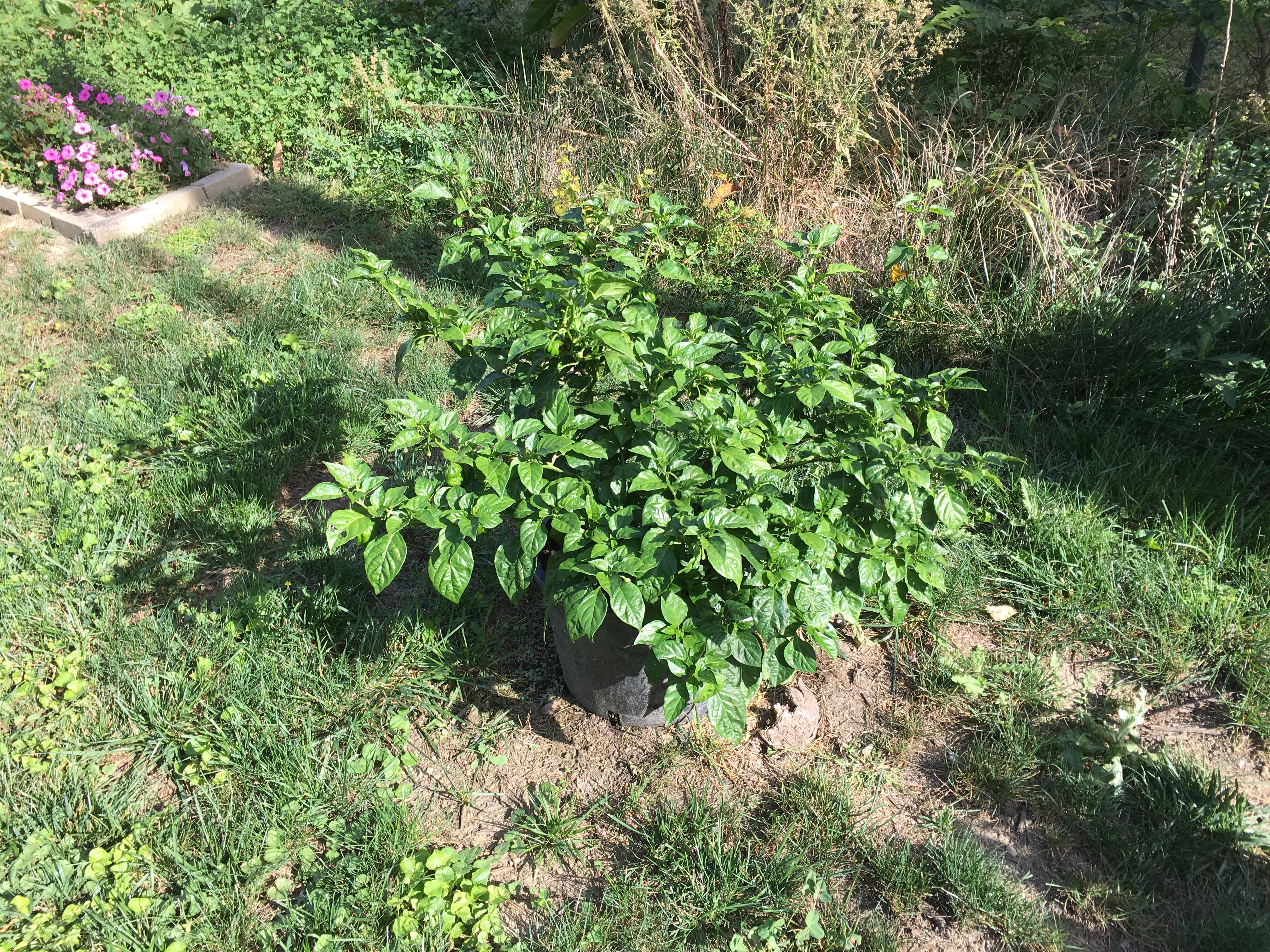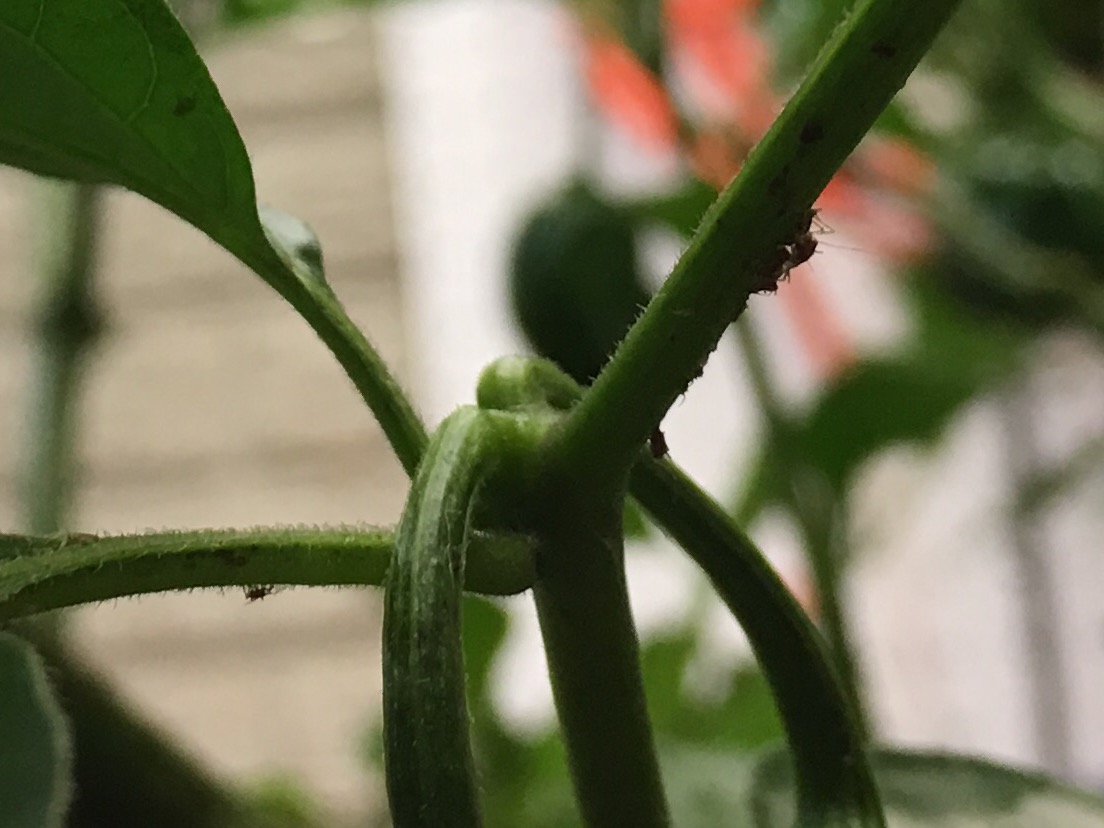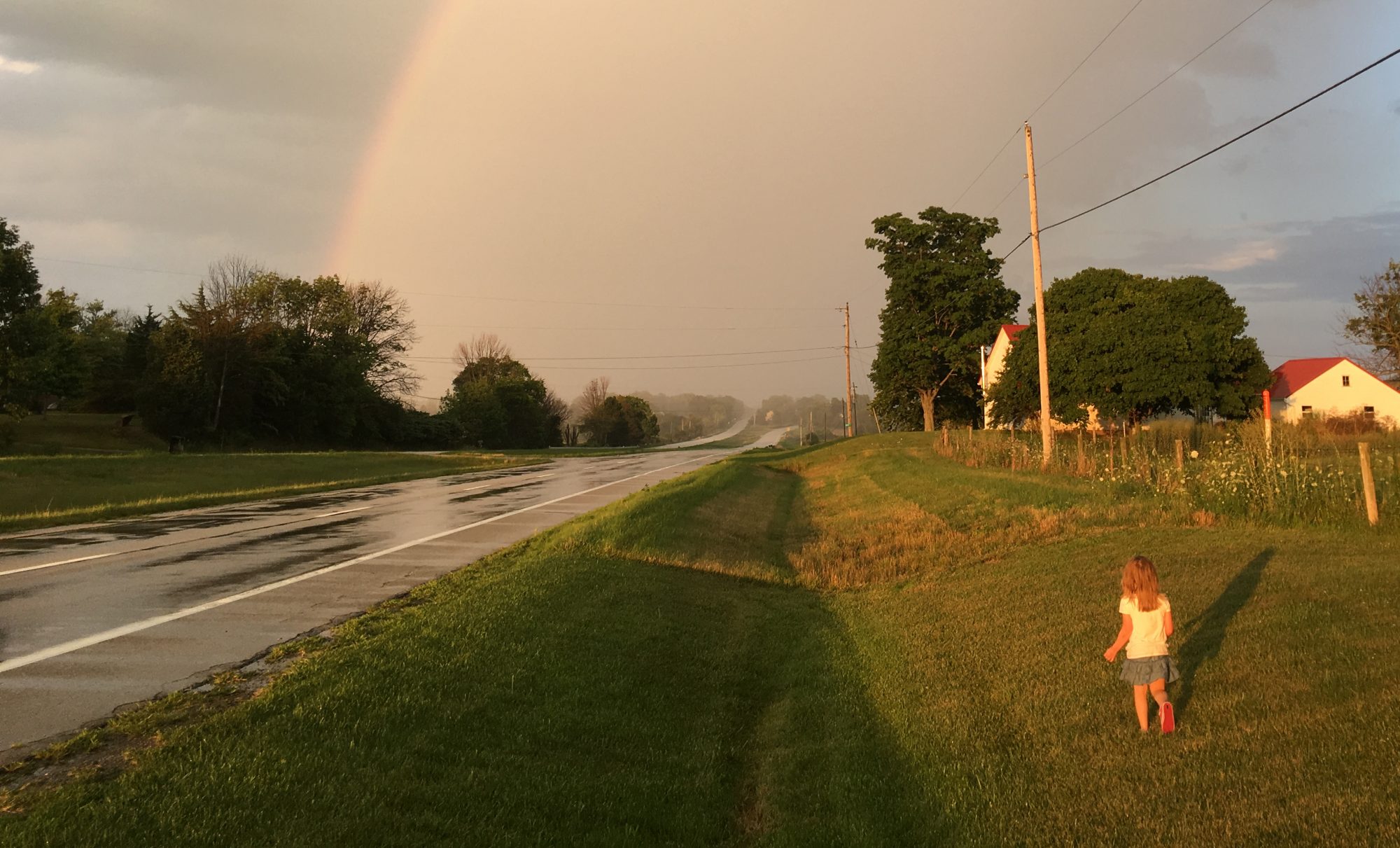When I brought my pepper plants inside to overwinter, I did not anticipate an aphid scourge. In fact, I’ve never experienced an aphid problem before, so the threat didn’t register. In the past, I once had a colony attack some bindweed, but as they left everything else alone, I wasn’t concerned, and in fact left the bindweed there as a sort of companion gardening plant.

The trouble is, bringing plants inside and into a controlled environment seems to have eliminated all natural predators. So while I may have always had aphids, their populations were controlled to the point that I never noticed them.
But a few weeks ago, I noticed the colony on my peppers. This particular strain was bright red, so I noticed fairly quickly. But it’s hard to treat big bushy plants inside, and while repeated sprayings lessened the population, I never eradicated it. And the aphids, being amazing specialists, transferred to the other plants. So finally, I had to take extreme measures. I took every infected plant outside to die in the freeze, along with their unwelcome guests.

It’s very annoying to lose plants that I really wanted to keep. From now on, I’ll start new peppers inside in the winter and just let them die at the end of fall. It’s not like I had a shortage of peppers this year. Lesson learned.
–Simon
P.S. Before I wrote this, I was lazily browsing the internet at work. Seeking apparently forbidden knowledge on aphid eradication, my query was blocked:

